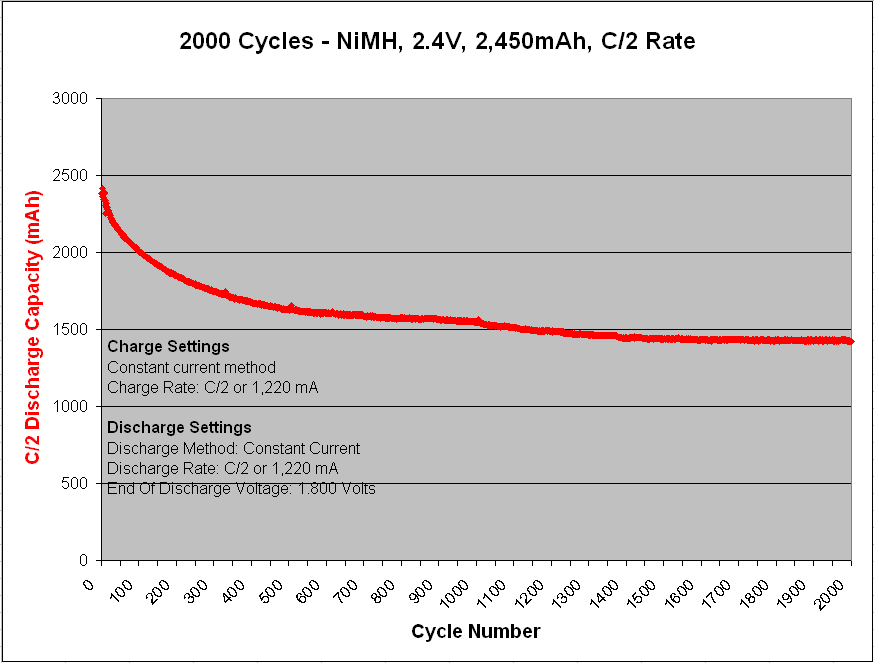Comments recently asking how the NiMH chemistry fared beyond the first 1000 cycles in the battery life cycle test was a question i asked myself back in the day as well, so a second set of 1000 cycles were run but results were not posted til now.
After a second 1000 cycles the NiMH capacity faded an additional 5%, dropping to 58% of rated capacity from 63% after the first 1000 cycles.
The NiMH chemistry held up well in terms of cycle life when not abused or over-heated by the charger which in-practice can be a difficult thing to do with NiMH battery types due to difficulty at detecting and terminating a full charge correctly and preventing damage from over-heating, especially at faster charge rates such as C/2 and without the use of a temperature sensor.
The PCBA 5010-4 battery analyzer uses a custom ‘voltage only’ method of full-charge termination with multiple redundant detection methods for NiMH and NiCd chemistry types developed over ~15 years which now demonstrates its effectiveness in life cycle testing by not overheating the cells or causing venting of electrolyte and capacity loss other than by what seems to be normal loss as a function of normal use.
